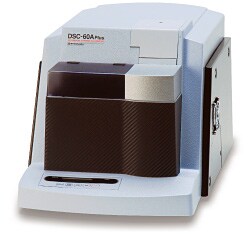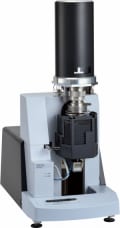CFRP Quality Control - CFRP Thermal Expansion Measurements -
CFRP Thermal Expansion Measurements
Thermal analysis instruments are used to measure a variety of physical and chemical changes,including fusion, transition, crystallization, expansion, contraction, decomposition, and combustion, while the sample is heated or cooled. Typical analysis methods include DSC, TGA, and TMA, which are effective for evaluating the thermal properties of thermoplastic resins, thermosetting resins, and composite materials.
CFRP Thermal Expansion Measurements using the TMA-60
Changes in the size of a CFRP sample in the carbon fiber direction and orthogonal direction were measured during heating. In the orthogonal direction, thermal expansion in accordance with heating was evident, but in the fiber direction, virtually no extension was evident.
Also, in the orthogonal direction measurement, changes due to glass transition were measured in the vicinity of 110 °C.

Thermal Expansion Measurements
Differential Scanning Calorimeter

A newly developed high-sensitivity detector doubles the previous peak heights. The 1 µW (RMS) max. noise level permits cooling measurements without the need for options. The detector can be cleaned automatically with simple operations.
TMA-60 Thermomechanical Analyzer

Thermomechanical analysis involves measuring a physical property under programmed temperature control to determine the relationship between the property and temperature.


